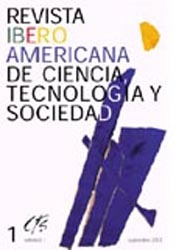The Broken Mirror of Knowledge and the Ideal of a Coherent Worldview
DOI:
https://doi.org/10.52712/issn.1850-0013-1100Keywords:
philosophy of science, history of science, humanities, scientific cultureAbstract
This article poses the necessity of reconstructing a global image of the world, which should take into account the contributions of science and philosophy. In the present world, the specialization of science results in an addition of specific and restricted knowledge that, even when making possible the advance of science, is contrary to philosophy understood as the knowledge which gives a vision of the joint (in Plato’s terms). However, science and philosophy are not contrary, as the history of both of them shows, but they constitute a continuous: the scientist’s curiosity doesn’t exhaust into the limits of his specific field, while the philosopher uses for his reflections the knowledge generated by science. This article affirms that science and philosophy should join for the creation of a “cosmovision” that would become a framework for the analysis and solution of individual and collective problems. The pursuit for a global vision is the main goal of every research, and only the joint work of science and philosophy will make possible to extend the rational understanding of the world and will construct a comprehensive framework of reference for human reflection and action.
Downloads
References
CAMUS, Albert (1942): Le Mythe de Sisyphe. Essai sur l’Absurde, París Gallimard.
MOORE, George Edward (1953): Some Main Problems of Philosophy, Londres, Macmillan. ORTEGA Y GASSET, José [1957] (1995): ¿Qué es filosofía?, Madrid, Alianza.
POPPER, Karl (1958): The Logic of Scientific Discovery, Londres, Hutchinson.
RUSSELL, Bertrand (1912): The Problems of Philosophy, Oxford, Oxford University Press.
SOKAL, Alan; BRICMONT, Jean (1998): Fashionable Nonsense: Postmodern Intellectuals’ Abuse of Science, Nueva York, Picador. [Hay traducción española: Imposturas intelectuales, Barcelona, Paidós, 1999.]
Downloads
Published
How to Cite
Issue
Section
License
Copyright (c) 2025 CC Attribution 4.0

This work is licensed under a Creative Commons Attribution 4.0 International License.
All CTS's issues and academic articles are under a CC-BY license.
Since 2007, CTS has provided open and free access to all its contents, including the complete archive of its quarterly edition and the different products presented in its electronic platform. This decision is based on the belief that offering free access to published materials helps to build a greater and better exchange of knowledge.
In turn, for the quarterly edition, CTS allows institutional and thematic repositories, as well as personal web pages, to self-archive articles in their post-print or editorial version, immediately after the publication of the final version of each issue and under the condition that a link to the original source will be incorporated into the self-archive.











